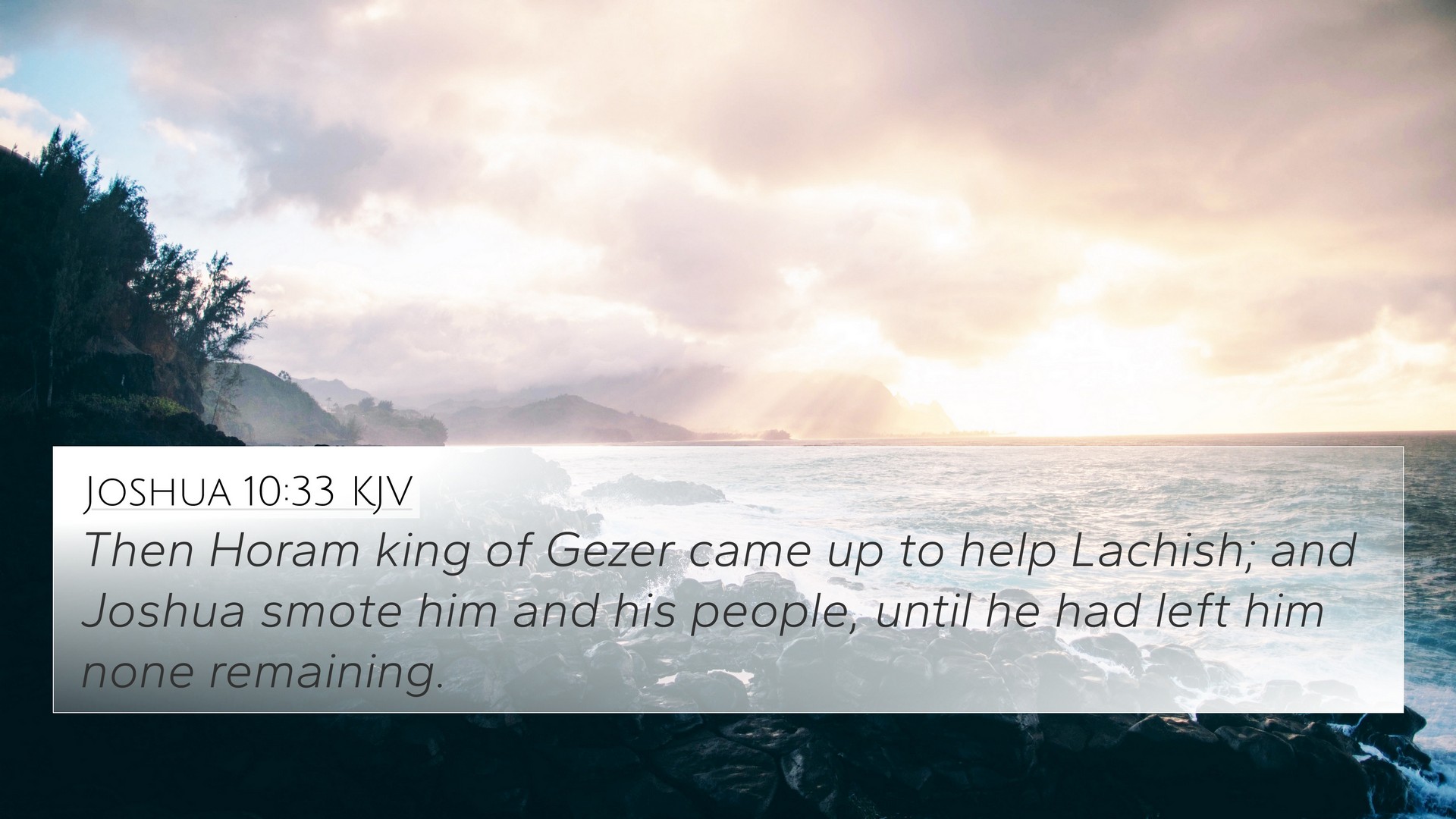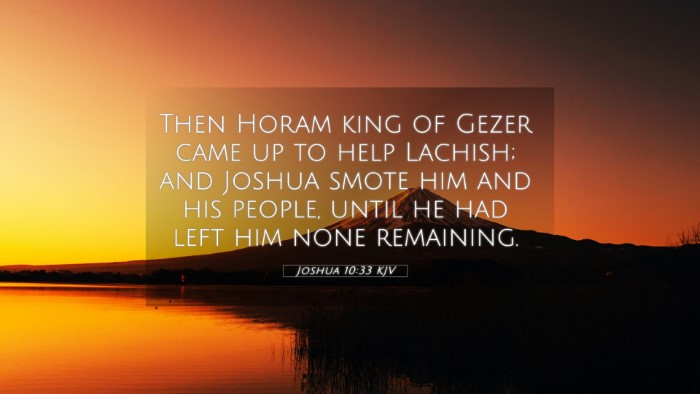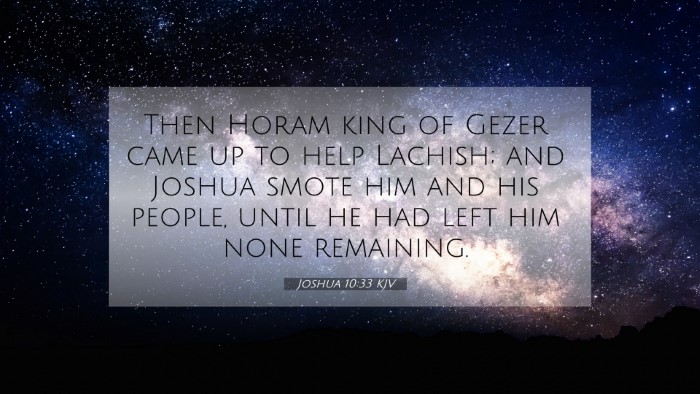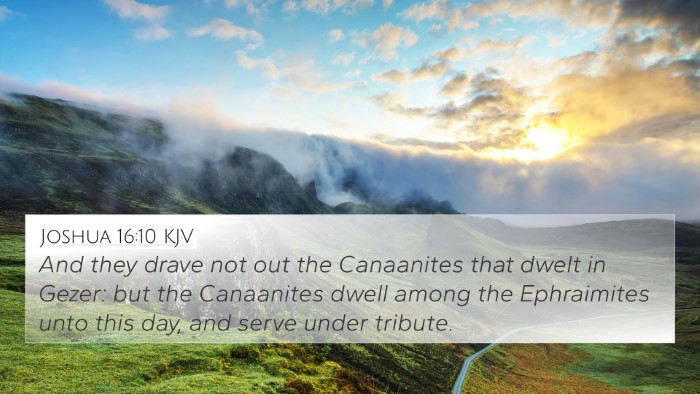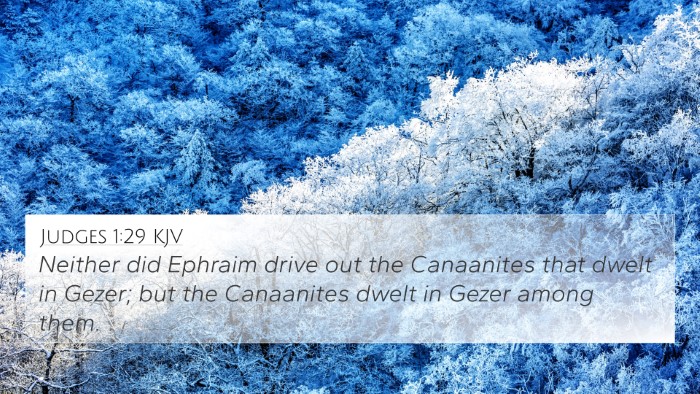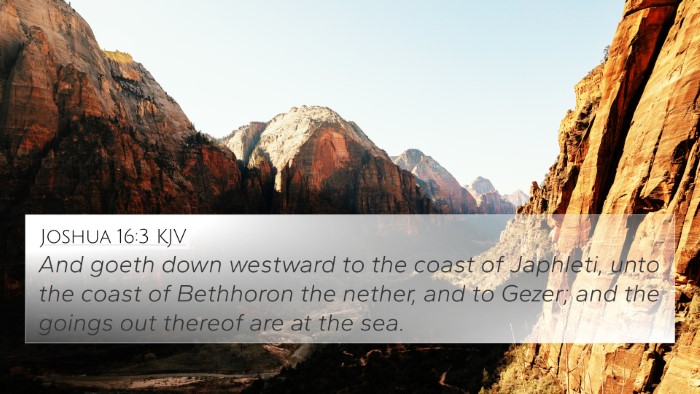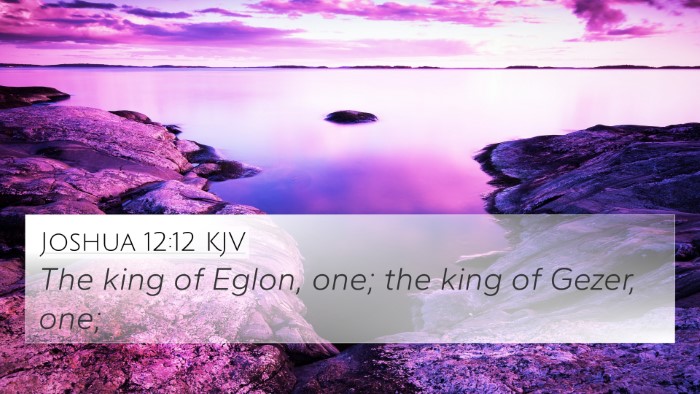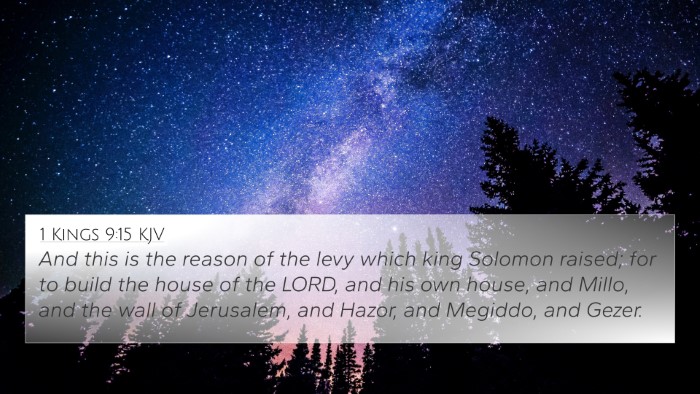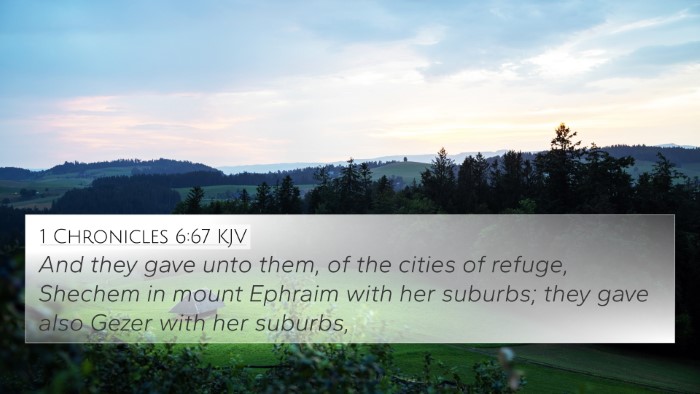Understanding Joshua 10:33
Joshua 10:33 states: "Then Horam king of Gezer came up to help Lachish; and Joshua smote him and his people, until he left him none remaining." This verse describes a significant event in the conquest of Canaan, highlighting the ongoing battles faced by Joshua and the Israelites.
Verse Meaning and Context
This passage illustrates the fierce resistance the Israelites encountered during their campaign to take the promised land. The interaction with Horam of Gezer reveals the alliances formed against Joshua and the effectiveness of his leadership in overcoming such obstacles.
Insights from Commentaries
-
Matthew Henry's Commentary:
Henry explains that the defeat of Horam represents God's support for Israel in their battles. It emphasizes that the Lord empowers His people to overcome their adversaries when they follow His commands. This reflects on God’s providence and the fulfillment of His promises to the Israelites.
-
Albert Barnes' Notes:
Barnes highlights the significance of Gezer as a stronghold, which demonstrates the extent of Israel's victory. The defeat of such a powerful ally underscores God’s sovereignty and the certainty of Israel’s success, contributing to the narrative of Divine assistance throughout Joshua's campaigns.
-
Adam Clarke's Commentary:
Clarke points out that the defeat of Gezer's king symbolizes the futility of resisting God's chosen leaders. He notes that even powerful kingdoms cannot withstand the might of the Israelites, illustrating a theme of divine intervention in warfare and conquest.
Cross-References and Thematic Connections
Joshua 10:33 can be cross-referenced with several other Biblical passages that provide deeper insights into the themes of conquest, divine support, and resistance:
- Joshua 10:1-14: This passage describes the larger context of the battle, including the miraculous event of the sun standing still.
- Exodus 23:27: Here, God assures the Israelites that He will send His terror ahead of them and drive out their enemies.
- Deuteronomy 31:6: This verse encourages strength and courage, reinforcing the idea of divine support in facing adversaries.
- 1 Samuel 17:47: David’s assurance that the battle belongs to the Lord resonates with Joshua’s victories.
- Psalm 44:3: This Psalm reflects on God’s power and how it was not by their own strength that they obtained the land, but through divine favor.
- Isaiah 54:17: “No weapon that is formed against thee shall prosper” reinforces the protection offered by God against enemies.
- Romans 8:31: Paul’s affirmation of God’s support echoes the sentiments found in Joshua's conquests.
Theological Implications
This verse and its contextual analysis provide rich grounds for understanding God’s involvement in human affairs and His active participation in the Biblical narrative of redemption. The conquest of Canaan serves as a metaphor for spiritual battles faced in faith, showcasing that with God’s help, victory is achievable.
Application for Modern Readers
Joshua 10:33 encourages believers today to trust in God’s plans and providence. The consistent theme of reliance on divine strength rather than human effort is crucial for spiritual growth and overcoming life’s challenges.
Conclusion
In conclusion, Joshua 10:33 is not just a historical account but a rich narrative that connects with various themes throughout the Bible. Understanding its implications can aid in applying its lessons to our lives, encouraging us to seek God’s guidance in the face of challenges.
